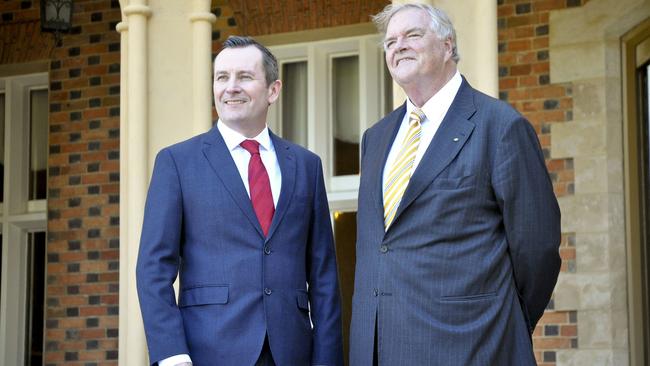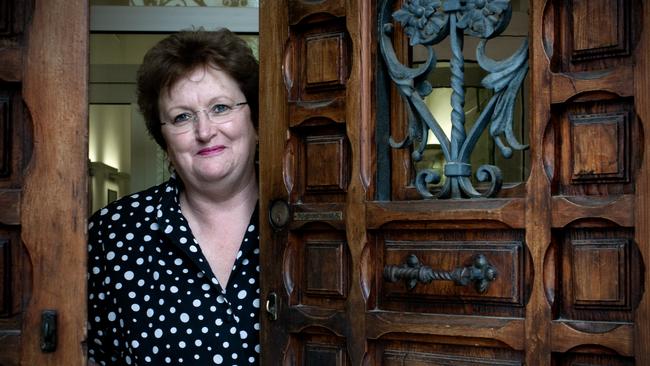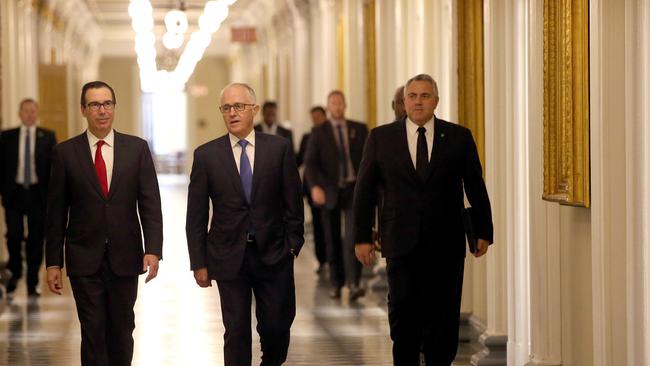Our biggest gravy train: the ex-pollie express
IT’S galling and it happens on all sides: plum jobs with great perks and huge salaries for ex-politicians. Is it right that so few receive so much great luck, asks Terry Sweetman.
Rendezview
Don't miss out on the headlines from Rendezview. Followed categories will be added to My News.
WHEN they were handing out good luck, Kim Beazley must have been at the head of the queue.
He was blessed with fine political genes, great intelligence, enormous vigour and a warm and engaging personality that took him to the leadership of the federal opposition and, at one stage, within opinion poll reach of the prime ministership of Australia.
He was deputy prime minister in the government of Paul Keating and many say he was the best prime minister we never had.
But he led the Labor Party to two defeats and was eventually replaced by Kevin Rudd and resigned from Parliament in 2007.
Was he downhearted? Probably not because he was then gifted the plum post of ambassador to the United States, where he served with distinction and bipartisan approval, and has now been named as the new governor of Western Australia.
These jobs brought him much honour, much prestige and much, much money.
It was reported that the governor’s gig comes with a $450,000 salary and a 41-room mansion in which to hang up his hat.

Even better, he is entitled to top up that a mite with maybe $100,000 of his parliamentary pension.
He enjoyed the same sweetener when he had the Washington job.
All the while, I presume, the other half of his estimated $200,000 a year pension is quietly mounting up.
Beazley is a fine man, a great servant of the nation and will be a terrific governor, but does any one man deserve so much luck?
And, if luck could be measured, what would be the sum total in the Parliament of 2004, the beginning of Beazley’s last full term?
I had a run through the roll the other day and found many of those who were in the House of Representatives or the Senate that year had gone on to important jobs, and well-deserved, in academia, business and community bodies.
And at least a score of them eventually left politics only to fall into lucrative government, quasi-government, government-sponsored or government-friendly jobs, many of them carrying salaries over which most of us would salivate.
Although they largely sound like they are at arm’s length and deserved appointments, you just feel in your bones that the main qualification was political service.
It’s difficult to say any of them were unqualified and many served in important community roles with possibly little or no reward.

The standouts are Alexander Downer (United Nations envoy to Cyprus, High Commissioner to United Kingdom), Brendan Nelson (Ambassador to the European Union, director of the Australian War Memorial), Philip Ruddock (special envoy for human rights, chair of review of religious freedoms), Joe Hockey (ambassador to US), and Peter Costello (Future Fund).
And that’s just the stars of the Lower House. From the Senate we have had the ascension of George Brandis (High Commission to UK), Richard Alston (High Commissioner to the UK), Robert Hill (permanent representative at the UN), Brett Mason (ambassador to the Netherlands), Nick Minchin (consul-general in New York), and Amanda Vanstone (ambassador to Italy).
Then there are the bit players, some of whose names you might barely remember: Arch Bevis (Defence Remuneration Tribunal, board of Defence Housing Australia, ANZAC Centenary Advisory Board), Anna Burke (Administrative Appeals Tribunal), Barry Haase (Administrator of Australian Indian Ocean Territories), Gary Hardgrave (Administrator Norfolk Island), Robert McClelland (Family Court of Australia), Peter McGauran (consul-general in Houston, Texas), Sophie Mirabella (board of ASC Pty Ltd, formerly Australian Submarine Corporation), Roger Price (consul-general, Chicago), Gary Humphries (Anzac Centenary Public Fund Board, Administrative Appeals Tribunal), Linda Kirk (Refugee Review Tribunal), Sandy Macdonald (Defence Housing), Kay Patterson (commissioner in Australian Human Rights Commission), and Natasha Stott Despoja (Ambassador for Women and Girls).

Most of the high profile beneficiaries were from the Liberal or National parties but there were a few plums for Laborites and odds and sods.
That’s just natural given it was a conservative government and there is no reason to suspect the balance wouldn’t be pretty much the same under a Labor administration.
However, it is difficult to swallow that in this one institution at one point of time at least 10 per cent of those involved have obtained such continued good fortune on top of their handsomely rewarded political careers.
And it’s galling to think that many of them could fall back on the 50 per cent rule to allow them to top of up their good luck with their already generous superannuation funds.
Our politicians continue to live in some kind of parallel universe locked into an orbit so far removed from us that they don’t even know it.
Someone close went delicatessen window shopping the other day and spotted some aged Spanish jamon (ham to us) for just $380 a kilogram.
I guess some people eat jamon and some eat salami, a difference about as wide as that between us and the political class we so generously support.


